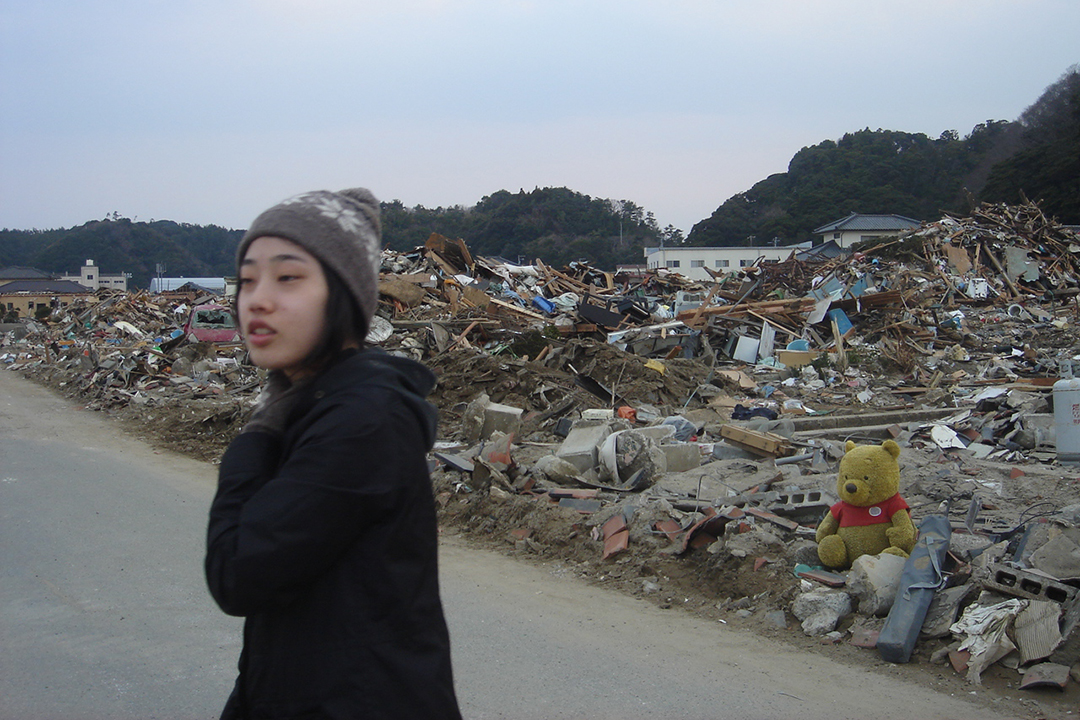How the Great East Japan Earthquake significantly affected the academic path of a student preparing for an entrance exam
The Great East Japan Earthquake and the nuclear accident drastically changed the livelihoods of people in the disaster-struck areas and significantly affected the academic paths of students preparing for their entrance examinations. Harumi Ueki was a student preparing for an entrance examination at that time. She said, “I felt an earthquake so strong that I couldn’t even stand up straight on the way home from the tutorial center,” as she recalled the events that happened immediately after the earthquake struck. Since her house located in Iwaki City, Fukushima Prefecture was half collapsed, she was forced to live in a shelter in Tokyo together with her parents. After entering the Waseda University School of Commerce, she established an NPO called Genkino-moto Company Iwaki. The name of the company was chosen with the hope of delivering positive energy through mutual respect and cooperation. Harumi has supported the psychological recovery of over 5,000 people in the nine years since the launch of the NPO in 2011. She shares about the NPO’s activities toward reconstruction and how she came to Waseda University because of the earthquake.
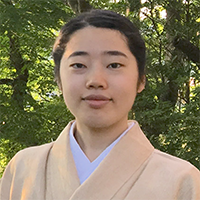
- Harumi UEKI
- Company employee
- Born in Iwaki City, Fukushima Prefecture, Harumi Ueki graduated from the Waseda University School of Commerce in 2017 and earned a Master’s degree from Waseda University Graduate School of Commerce in 2018. Because her house was half collapsed due to the Great East Japan Earthquake, she took shelter in Tokyo together with her parents. She initially intended on enrolling in a national university; however, she changed her mind and decided to enroll in Waseda University because it offered exemptions or reductions of entrance exam and tuition fees. After entering the university, she and her mother founded an NPO called Genkino-moto Company Iwaki. She is currently involved in the management of the NPO while working as a company employee.
Struggling just to survive
Iwaki City is located at the southeastern end of the Tohoku region. It adjoins the Ibaraki Prefecture to the south, and has 60 kilometers of coastline facing the Pacific Ocean on the east side. During the Great East Japan Earthquake, the shaking, which registered at 4 or higher on the seismic intensity scale, lasted for about three minutes. The highest reading was in Iwaki, which had a seismic intensity of 6. Harumi, who was a student preparing for an entrance exam at that time, suddenly felt the intense shaking on her way home from the tutorial center. Looking back on her experience, she said it was an unusual scene with people squatting down on the street and fallen debris scattered everywhere.
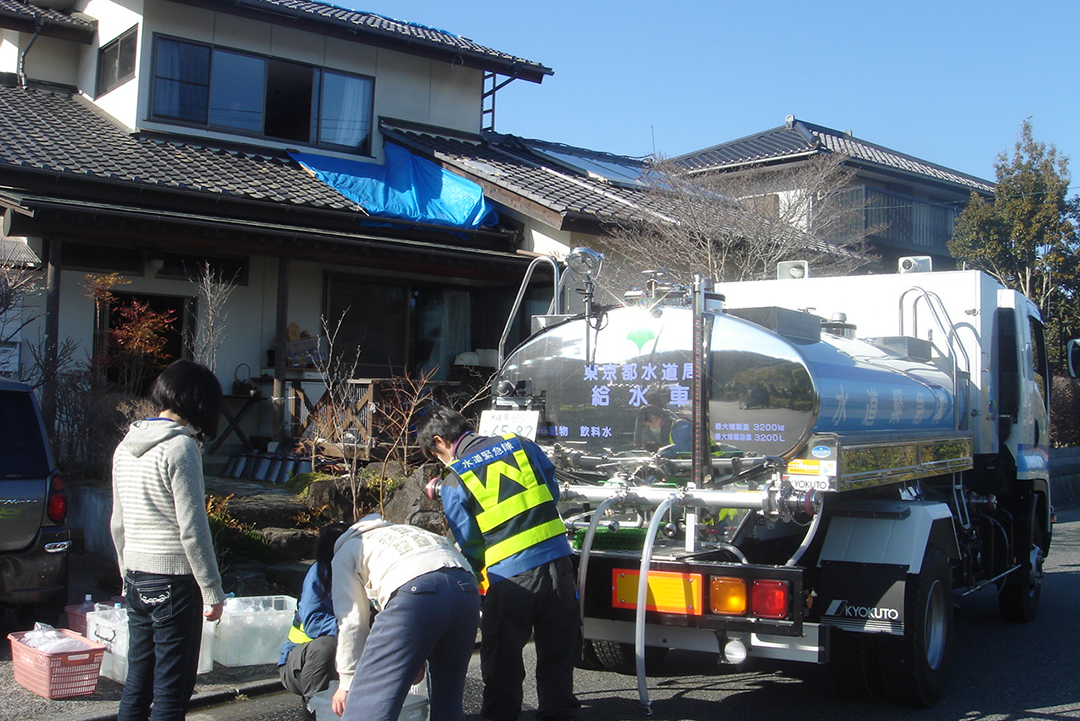
“Back then, I had failed an entrance exam and was preparing for the next one. On my way home from the tutorial center, I was going to buy some taiyaki. As I was heading toward the store, I felt intense and long shaking, which I had never experienced in my life. I looked around and saw the cars parked in parking lots swaying, and a ventilation fan fell from a house that was being demolished. I ran over to an old lady who was squatting down in the parking lot. I held her hand and kept an eye on our surroundings, thinking that I would drag her and run if I saw a car coming.
I was worried about my house. I rushed home and saw that the roof tiles had fallen off because of the quake and our dishes and books were scattered all over the house. The house was half collapsed. Although we removed the debris and created a liveable space, the house could collapse at any second because of the long-lasting aftershocks. The water outage also lasted for about a month. We were struggling just to survive on a meager supply of relief goods and water.
Around a month after the earthquake, my parents and I decided to seek refuge in Tokyo to improve our situation. We moved from one shelter to another, unpacking and packing again and again. It was difficult to concentrate on studying until we settled in a temporary housing called ‘minashi-kasetsu jutaku.’”
“I can be a university student”
Many of the households in the areas affected by the earthquake experienced a drastic change in household budgets, making the educational advancement of their children more difficult. The same thing could be said for Harumi, who was planning to enroll in a national university. She looks back on the decision she had to make back then. “Money was tight because of all the repairs we had to do to our house, so I couldn’t even consider going to a private university.” She was studying hard to prepare for the entrance exam so she could get into her first choice, a national university, while living in the shelter in Tokyo. However, she found out that Waseda University was offering an entrance examination fee exemption to students affected by the Great East Japan Earthquake.
“My mother encouraged me to take the exam. She said, ‘This is a good opportunity, why don’t you take the exam?’ So, I took the Waseda University entrance exam, partly thinking that it could give me more experience in taking exams. I passed; however, the tuition of a private university is very high compared to a national university. I could not decide to enroll just because I passed the exam. Back then, my older sister was also a university student on a scholarship, and I couldn’t burden my parents with the tuition.
I couldn’t decide on what to do, but what ultimately made up my mind was the notification of tuition exemptions or reductions I got from Waseda University. I discovered that my entrance fee and tuition would be waived because of the damage the earthquake did to our house. There is a limit to what I could do to solve our financial issues, and I had no choice, but to rely on others. Working as a part-timer to cover my tuition fees was not practical because I would be too busy to attend class.
I wouldn’t have to worry about tuition if I availed of Waseda University’s tuition reductions/exemptions. I just assumed that going to a national university was my only option because of the impact of the earthquake on me, but I was very grateful that a new door opened up thanks to Waseda University. I would not be where I am today if I decided not to take the entrance exam or if the tuition reductions/exemptions weren’t offered, even if I passed. I remember feeling relieved and thinking, ‘I could also be a university student, as I was able to find information on Waseda University because of the earthquake.’”
To support the psychological recovery of disaster victims whose ordinary lives were taken away
As soon as she entered the university, Harumi and her mother founded Genkino-moto Company Iwaki, an NPO working toward psychological recovery through lifelong learning to provide accurate information to disaster victims. In light of how the living environments of the disaster victims were changing dramatically (i.e., prolonged living in shelters and relocation to “minashi kasetsu jutaku” following the Great East Japan Earthquake), she and her mother have supported their psychological recovery so that the victims could move forward and go on with their lives by creating a new community free of traditional regional partitions
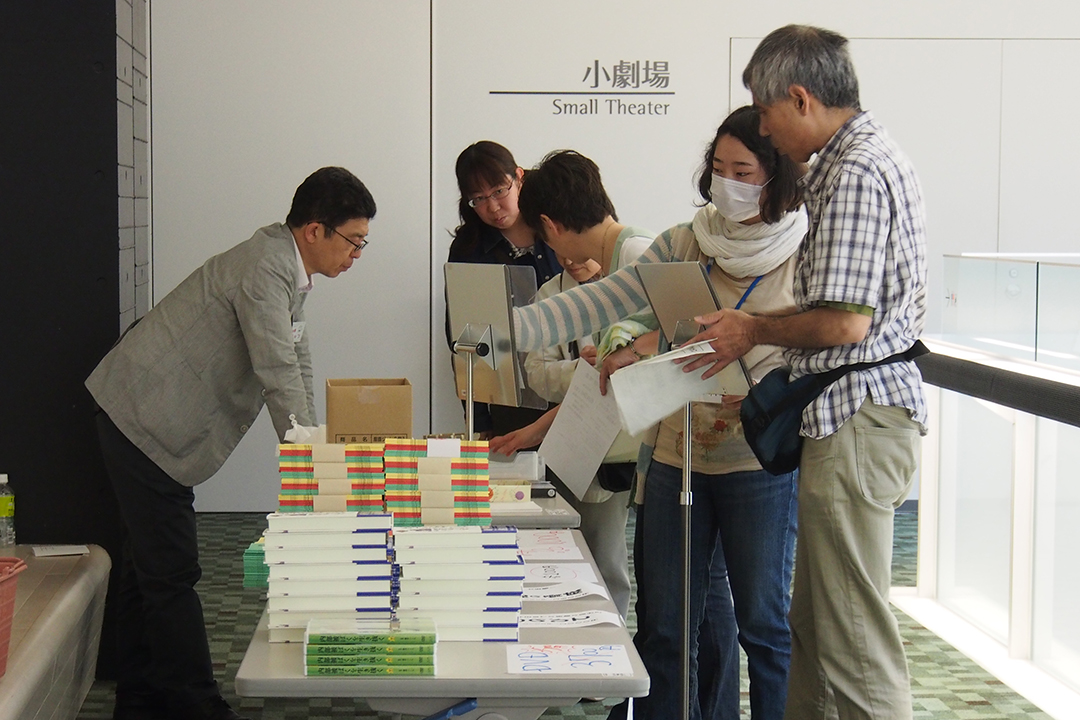
“The activity started with my mother’s clothing giveaways. After hearing the words of my mother’s friend who was living in a shelter, we thought that we could bring back people’s smiles and vibrancy by sending not just old clothes but nice ones as well. During the restoration of the infrastructure, I felt a sense of crisis that people were still consumed by anxiety and fear and psychological recovery was not yet achieved. So, I established an NPO to facilitate psychological recovery through building a community of friends who can talk, learn, and grow together by leveraging what we learned from 3.11 for the future.
Many disaster victims who were forced to live in shelters have anxiety about things like childrearing in new environments or living in shelters. I think it is important to support their psychological recovery by relieving their anxiety, providing mental care, and promoting interregional exchange so that they won’t feel isolated. 。
We have held various events, including lectures by specialists, movie screenings, and kurumaza roundtable meetings, on the themes such as radioactivity, childrearing, community building, etc. Waseda University offers open courses wherein students can learn about a wide variety of topics they are interested in, even if they are not part of their respective fields of specialization. I took numerous courses on renewable energy and mass media information, which I became interested in after the earthquake. I was able to utilize the knowledge I gained when exchanging opinions during the events held by the NPO, which added depth to the discussions. I am really glad that I was able to create a place where people can interact.
It is fulfilling to see many of the participants leave the venue with a smile, saying: ‘I am glad they listened to my story because I felt like I was facing all of these problems alone ’ or ‘I feel relieved now that I have received accurate information from a specialist.’”
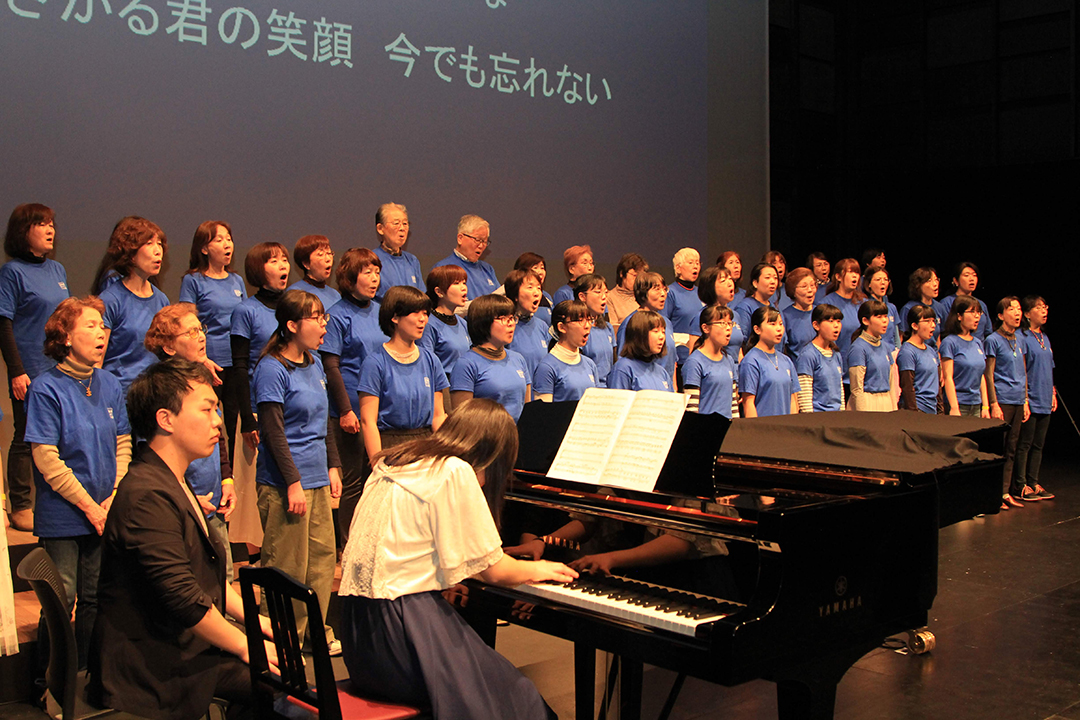
Seeing ourselves beyond past as disaster victims
According to the data provided by the Reconstruction Agency (as of December 8, 2020), the number of evacuees due to the Great East Japan Earthquake was about 42,000. Genkino-moto Company Iwaki plays a significant role as it continues to provide disaster victims who suffered from triple difficulties (i.e., earthquake, tsunami, and nuclear accident) with a place to interact.
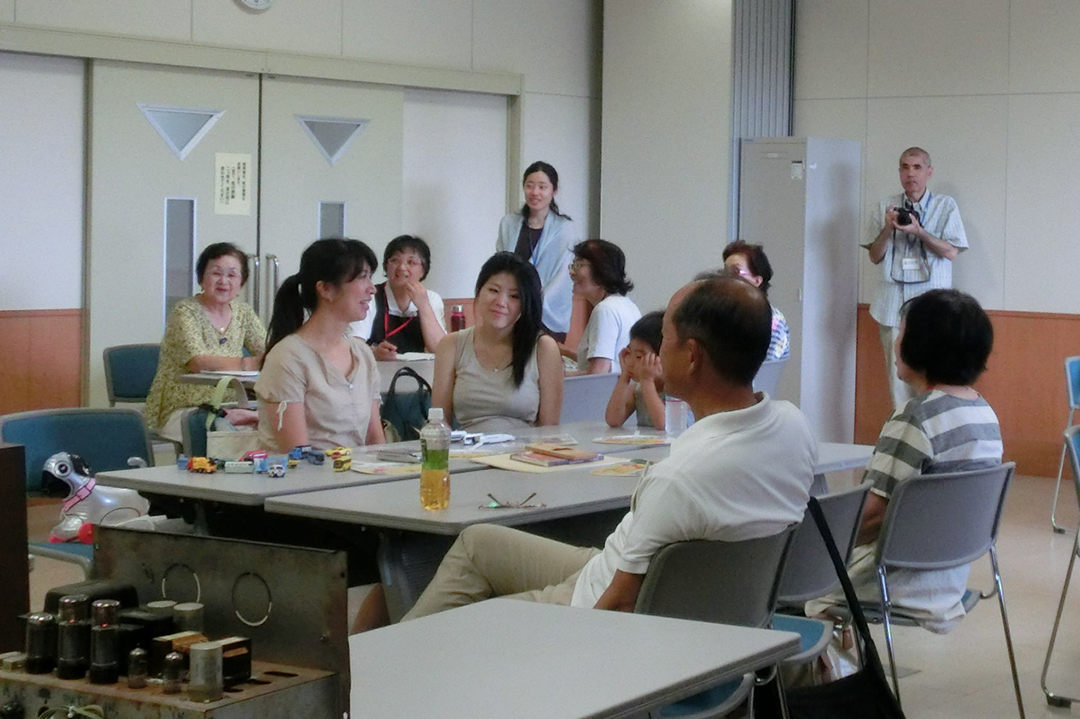
“Our reconstruction activities began with clothing giveaways and it has been nearly 10 years since then. To be honest, time flew by so quickly as we kept working toward psychological recovery. In 2021, we were planning to hold an event for the repose of souls of those who died during the quake and distribute a documentary film containing interviews with the disaster victims; however, we had to cancel them due to COVID-19. It is our mission as survivors to not let people forget about the Great East Japan Earthquake, and to apply everything we’ve learned from natural disasters that have recently been occurring more frequently.
It is also important to realize that we cannot remain stuck as disaster victims ourselves. The Great East Japan Earthquake certainly caused unprecedented destruction, which is why it has remained in the minds of many people and we’ve received overwhelming support from all over the country.
However, all disaster victims go through the same difficulties regardless of the scale of the disaster. We cannot move forward if we just keep depending on the support of outsiders, while there are people who are barely surviving as we speak.
It has been 10 years since the earthquake and I strongly feel that it is time to stop relying on other people and start acting on our own.”

